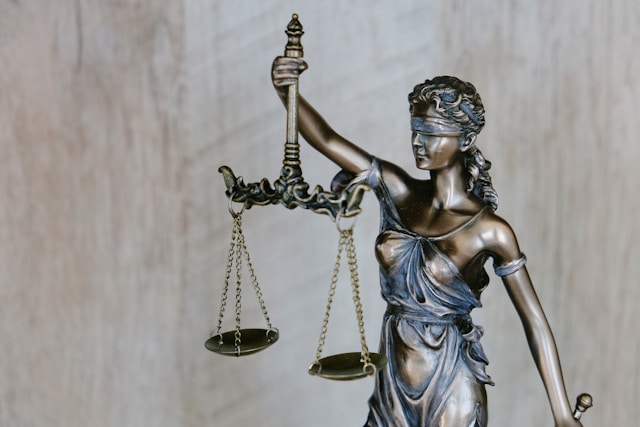Motorcycle accidents can be both physically and emotionally devastating. Navigating the legal process that follows can add to the stress, especially if you’re unsure of what to expect. This guide is designed to help you understand the steps you need to take after a motorcycle accident. Our goal is to provide you with a clear roadmap so you can handle the legal aspects with confidence. From the role of a lawyer to filing a claim, this post will walk you through everything you need to know. With this guide, you’ll be better prepared to protect your rights and secure the compensation you deserve.

The Importance of Legal Representation
One of the first steps you should take after a motorcycle accident is hiring a specialized lawyer. Legal representation is crucial for navigating the complexities of personal injury law. A knowledgeable lawyer will guide you through each step of the legal process, ensuring you meet all deadlines and understand your rights. As explained by the team from Belluck & Fox, LLP, attorneys will collect evidence, negotiate with insurance companies, and represent you in court if necessary. By having a lawyer on your side, you increase your chances of a favorable outcome, whether it’s a settlement or a court ruling. Don’t underestimate the importance of professional legal help.
Securing Medical Attention
Immediately after an accident, your health should be your top priority. Even if you feel fine, it’s essential to seek medical attention. Some injuries may not be immediately apparent and can worsen over time. A thorough medical examination will document your injuries, which is critical for any future legal claims. Medical records serve as evidence and can significantly influence the amount of compensation you receive. Delaying medical care can not only jeopardize your health but also weaken your case. Make sure to follow all medical advice and keep records of your treatment and expenses.
Documenting the Scene
Accurate documentation of the accident scene can be a game-changer in your legal case. Use your phone to take photos of the scene, including your motorcycle, any other vehicles involved, and any visible injuries. Capture different angles and ensure the photos are clear. If there are witnesses, ask for their contact information and statements. Police reports are another vital piece of evidence. Make sure to obtain a copy and review it for accuracy. Proper documentation helps build a strong case by providing a clear, factual account of the incident, which can be crucial in negotiations and court proceedings.
Notification and Reporting
After ensuring everyone’s safety and documenting the scene, it’s time to report the accident. Notify your insurance company as soon as possible. Provide them with all the necessary details but avoid making statements that could be used against you later. Be honest but concise. Additionally, you may need to report the accident to local authorities. Each jurisdiction has its own requirements, so make sure to follow them to the letter. Failing to report the accident can result in penalties and may complicate your legal case. Timely reporting is crucial for both your legal and insurance claims.
Understanding Insurance Policies
Navigating insurance policies can be daunting but understanding your coverage is crucial. Review your policy to know what it covers, such as medical expenses, property damage, and lost wages. It’s important to know if you have uninsured or underinsured motorist coverage. This can come in handy if the other party lacks adequate insurance. Your lawyer can help you interpret complex policy language and ensure you receive the benefits you’re entitled to. Understanding your insurance policy empowers you to make informed decisions and effectively negotiate settlements, increasing your chances of a favorable outcome.
Filing a Claim
Filing a legal claim is a multi-step process that requires meticulous attention to detail. Begin by gathering all necessary documentation, including medical records, police reports, and witness statements. Your lawyer will help you draft a compelling claim that outlines the extent of your injuries and damages. Submit your claim to the relevant insurance company and be prepared for negotiations. Insurance adjusters may try to minimize your payout, so having a well-prepared claim is essential. Keep copies of all correspondence and document every step of the process. Filing a claim is a critical step in securing the compensation you deserve.
Preparing for Negotiations or Court
Once your claim is filed, the negotiation process begins. Your lawyer will negotiate with the insurance company to reach a fair settlement. Be prepared for multiple rounds of discussions, as insurance companies often start with low offers. If negotiations fail, your case may go to court. In court, both sides present their evidence, and a judge or jury decides the outcome. Preparing for court involves gathering additional evidence, witness preparation, and developing a strong legal strategy. Whether through negotiation or court, being well-prepared increases your chances of a favorable resolution, ensuring you receive the compensation you deserve.
Understanding the legal process after a motorcycle accident can be overwhelming, but this guide aims to make it manageable. By following these steps, from seeking medical attention to preparing for negotiations or court, you’ll be better equipped to handle the challenges ahead. Remember, the role of a specialized lawyer cannot be overstated; they are your best ally in navigating this complex terrain. Take action today to protect your rights and secure the compensation you deserve. For more personalized advice, consider consulting with a legal expert who can offer tailored guidance based on your unique situation. Stay safe, and ride responsibly.
















Add Your Comment